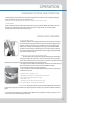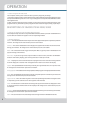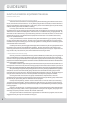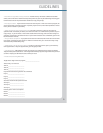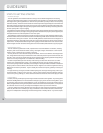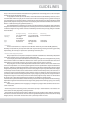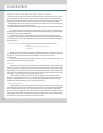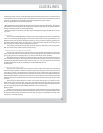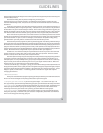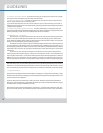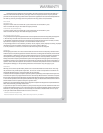
15
GUIDELINES
So if the Surgeon General's findings are not convincing evidence enough to keep most us exercising on a
consistent basis, what is?
Scientists are finding that the process of beginning, increasing and
ultimately sticking to an exercise program is a combination of two elements: finding the right
incentives and building a habit. And, as we will see, these two motivational factors are connected,
but distinct.
Focusing on the positive is one of the best incentives to exercise. Avoid looking at exercise as a
way to fix something that's wrong with your body. Instead, focus on your successes. Pat yourself on
the back each time you've made it though a workout. Thrive on the energy that exercising gives you.
Reward yourself with a dinner out, after you have reached a certain weight loss goal, or buy yourself a
new workout outfit. With these rewards, you'll go back for more, and your body will show results.
Don't view exercise as punishment. Don't look at exercise as something that has to be tackled
because you are out of shape. Think of exercise as an investment in your health, your physical looks and
your mental outlook. As you run, walk or lift weights, concentrate on the positive energy being
generated within your body and the renewed sense of life and wellness you feel.
The basics of any fitness program are planning and setting goals. Goal setting and formulating a
plan are the most clear ways of establishing a consistent program of exercise; they are also a powerful
form of direction and motivation. Take some time to think about what will help you begin your exercise
program. Write these down in your daily planner or diary. Goals provide a sense of purpose and incen-
tive that can drive you to your intended destination. However, for goals to be effective they need to be
realistic. Motivation will be strengthened only if it's possible to reach your objectives.
Consider this: Your mind and body will respond better to exercise if you start with 20-minute
sessions, three times a week, rather than an hour session four times per week. Once the sessions
become a routine, aim for 30 minutes, then increase from there.
The most important thing in any exercise program is to do your best to keep progressing, backslid-
ing as little as possible and getting back on the horse just as fast as possible if you fall off. Try to
anticipate lapses: If a crazy workday looms, get up early and squeeze in a short ride on a stationary
bicycle so that you've achieved something even if it isn't your regular workout routine. When on a
business trip, stay in a hotel that has an onsite workout facility.
Exercise is one of life's joys. It energizes – giving you a sense of well-being and accomplishment and
keeps you healthy and fit. There is great pleasure in being able to set goals, accept challenges, and push
yourself to a better lifestyle of health and fitness. No matter what your reason for exercising – to lose
weight, to get fit, or to feel better –- motivating yourself to exercise on a regular basis requires
changing your behavior.
> Make Exercise A Habit
The key to a successful fitness program is getting your body to do what your mind knows it should.
Here are six mental strategies to help keep you focused on your fitness goals.
1. Clarify why you want to exercise. If you want to gain strength – is it to swim more laps, or to
tone-up your body. By understanding and detailing your goals, you will be better able to stay motivated.
2. Vary your workout. To make your routine more enjoyable, vary it once in a while. Supplement your
indoor cycling with outdoor cycling and strength training. These activities make exercise more
interesting and increase your fitness level by making you utilize different muscle groups.
3. Focus on the positive. Avoid looking at your exercise program as a way to fix something that's
wrong with your body. Instead focus on your successes. Congratulate yourself after each workout.
Thrive on the energy that exercising gives you.



